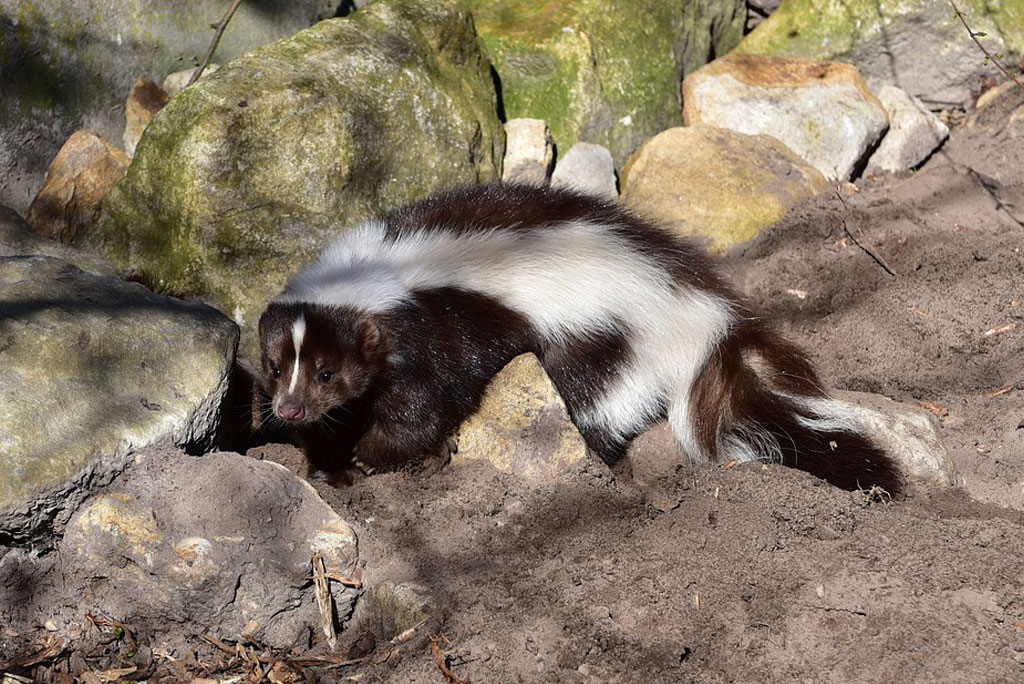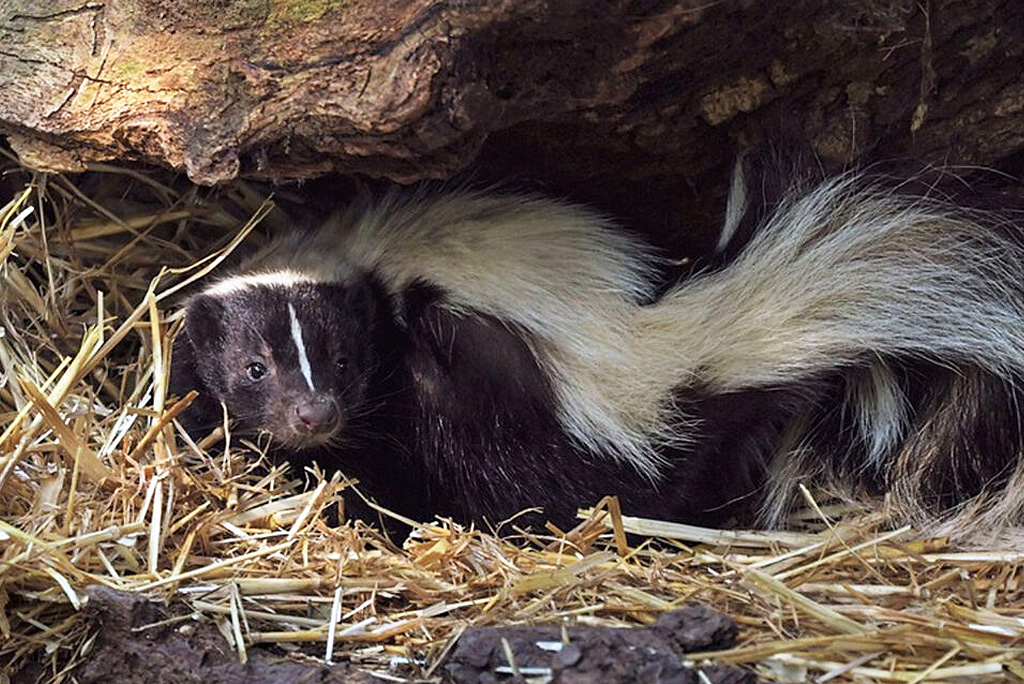When people think of a skunk, they usually picture a striped animal that is about the size of a domestic cat. But what they think about this wildlife is a different matter depending on their personal experiences. Striped skunks are naturally woodland animals but have adapted very well to the presence of humans and thus, frequently live near towns.
Keep reading as we discuss the places where skunks actually tend to inhabit.
Where Do Skunks Hide During The Day And Make Their Nests?
Skunks are nocturnal creatures that only come out from the early evening and all through the night. During the day, they spend their time sleeping in their dens. Their dens are dug underground, but these animals reside in vegetation during the warm months.
Ordinarily, skunks make their nests in tree hollows. This is where they live and whenever they’re looking for a home, they will look for an appropriate tree and create their den within the tree hollows.
Naturally, skunks prefer living in the trees and avoid living in any other place unless under particular conditions. There are some exceptions where skunks choose to occupy different areas, and they will opt for underground homes when there are no tree hollows available for them. Provided that the skunk can get adequate shelter and protection from weather elements, it will burrow underground. They will look for underground holes that might have been dug and left by other animals, or they dig their own holes underground. At times, you can find skunks living under porches in human households and inside their sheds.
Skunks have to adjust when they do not have tree hollows to live in. The holes they burrow in the ground are spacious and comfortable. Those holes are usually located in places that ensure that the skunk has a nearby water source. It is common to find underground dens for the skunks situated close to a river or a pond.
What Does A Skunk Burrow Look Like?
The natural build of the skunk composed of short legs ensures that they are strong enough to dig as far as 2 feet deep to access living space. They will use their stubby legs to dig through the foundation and access crawl spaces underground. Their digging skills enable them to make homes for themselves by digging dens underground to act as temporary homes when feeding or taking care of their young ones. Their strength ensures that they can dig and create shelter for themselves whenever they feel endangered. They will focus on a single spot that seems comfortable for them and dig until they have arrived at a suitable site where their daytime sleep will not be interrupted.

How Can You Find A Skunk Den?
Any signs of digging might indicate that a skunk has been creating their shelter in your home. The skunk will try to dig in places where they can be comfortable and safe. Loose soil on the ground is usually a sign that you have a skunk nearby. They do not stay far away from human shelters, and you are very likely to find them close to your home.
Skunks are typically solitary creatures and like to live alone. They only join forces when it is very cold and can stay together in hollowed-out logs or underground dens they have dug for themselves. The skunks will always dig out the holes they have been living in, even when you cover them over.
When you find a reopened hole, it is a likely sign that you have a skunk living in the hole and should call for skunk removal services immediately. Skunks are not aggressive, but you should not allow them to remain on your property.
Do Skunks Remain At The Same Place?
Skunks do not stay at the same place for more than a few days. However, females who have young babies will stay at any site for much longer while taking care of their young ones.
Allowing for the skunk to move out before sealing the hole is recommended. Skunks are also known to change homes several times a year and will always be at different homes. They will rarely stay at the same place twice, and they are not known to come back to the same den unless it is the young ones. By the end of summer, the skunk will be out and moving, and they will not stay at the same place.
So if you are worried about them living on your property permanently, you can rest easy knowing that they eventually go away. Once their active season is finished, they will move on to other places, and they will no longer bother you. Thus, it is not always a good idea to relocate or trap skunks as they will eventually move on their own.
However, sometimes it is best to get rid of the skunks taking residence on your property as they can cause damage and nuisance. The easiest way to remove or exclude a skunk from your home is to hire a pest control company to do it for you. The experts at Peachtree Pest Control in Atlanta will safely and humanly trap and remove the skunks. Contact us today for more information or to request a quote.
